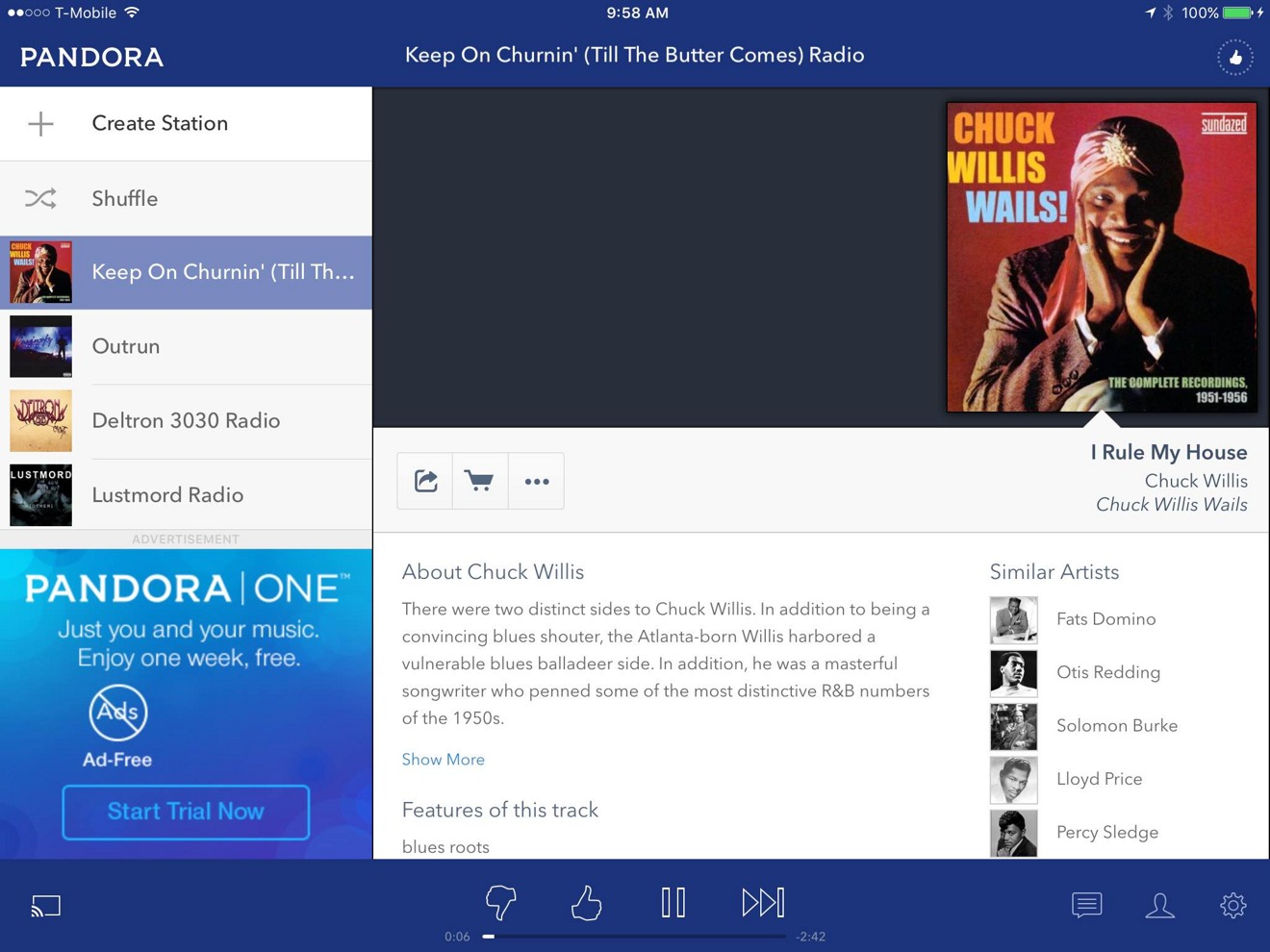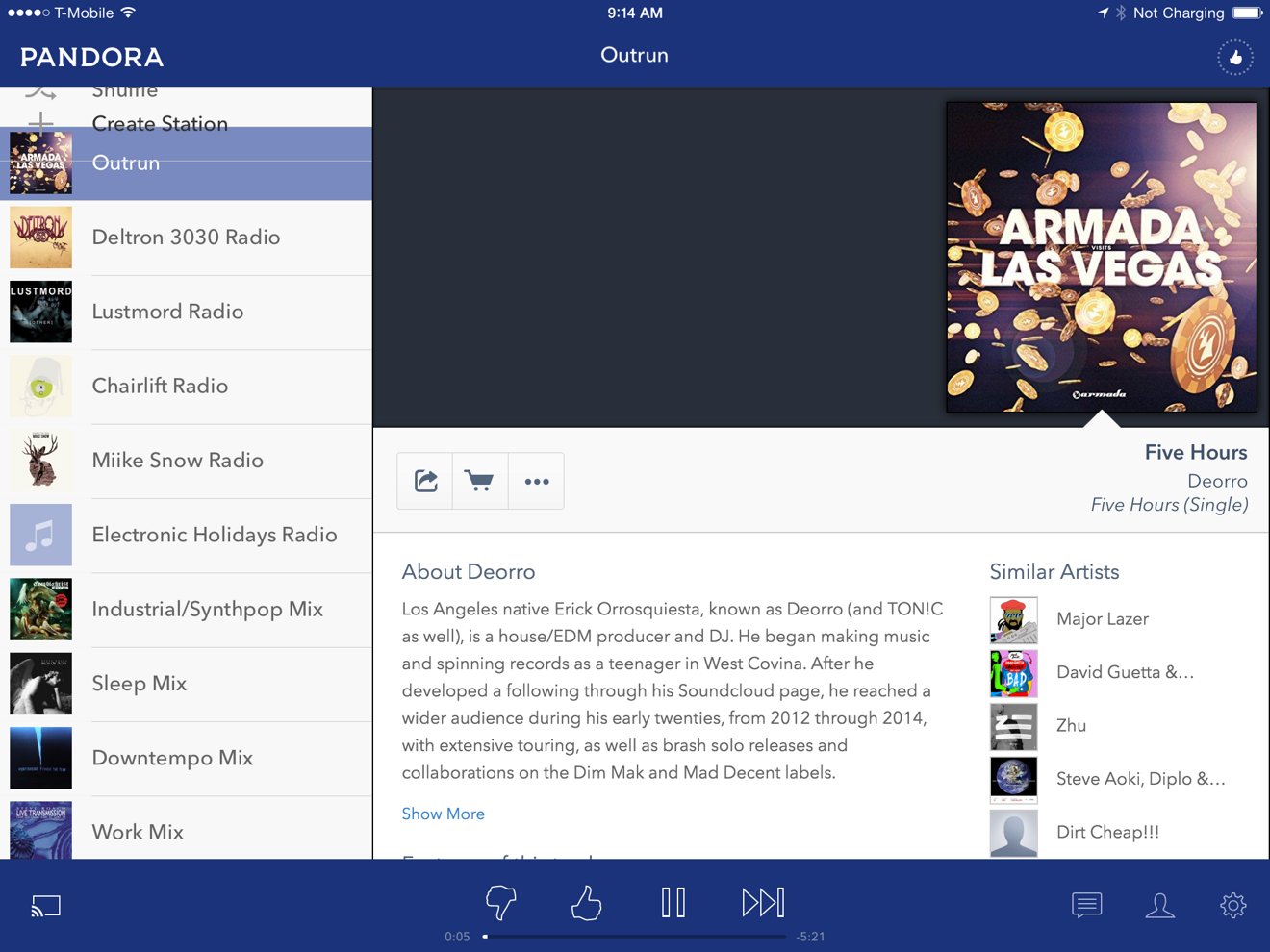Activist investment firm Corvex Management is pushing streaming radio service — and Apple Music competitor — Pandora to seriously consider selling the company, instead of pursuing what it has dubbed a "costly and uncertain business plan."
Corvex is the single largest shareholder in Pandora with a 9.9 percent stake, or about 22.7 million shares, according to Reuters. Corvex is a hedge fund run by Keith Meister, a protege of billionaire activist investor and former Apple shareholder Carl Icahn.
"Despite its many strengths, [Pandora] has been unable to date to translate its great product into a great business with an attractive public market valuation," Corvex wrote.
The investment firm believes Pandora could garner interest at a "substantial premium" to its recent stock price. Pandora had a market capitalization of $2.29 billion on Monday, and Corvex believes potential buyers could include large Internet companies, phone makers, and media conglomerates.
In March, Corvex told Pandora management of plans to replace some of its board members, but withdrew that plan based on Pandora Chairman Jim Feuille's apparent willingness to consider a sale, according to The Wall Street Journal. The company subsequently appointed Tim Westergren, a former musician who spearheaded Pandora's music algorithm technology, as CEO.
Westergren initially indicated opposition to a sale. This surprised and disappointed Corvex, which led to this week's public call for the company to be sold.
Pandora said in response that it "has a profitable core business, combined with a strong balance sheet" and is "confidently investing to fully capture the massive opportunity ahead of us." It touted its constant dialogue with shareholders and commitment to achieving long-term value for them.
Pandora's shares are down more than 25 percent in 2016 and more than 45 percent year-over-year. Unlike other streaming services, which have negotiated deals with record labels to allow listeners to pick songs, Pandora has acted more like a radio station, playing songs that match a genre but not allowing customers to make selections. It is now playing catch-up and negotiating with record labels for the licenses it needs to offer more on-demand music services.
As of last fall, Pandora had 78.1 million active users, though most of those were free, ad-supported accounts. Apple Music, meanwhile, has more than 13 million paid customers, with no free tier outside of three-month trials and Beats 1 radio.
Pandora expanded into a new sector with the purchase of ticketing and digital marketing company TicketFly for about $450 million last year. Corvex cited that acquisition as an example of a "questionable capital allocation" decision in its letter.
 Michael Beshara
Michael Beshara







-m.jpg)






 Charles Martin
Charles Martin


 Wesley Hilliard
Wesley Hilliard
 Stephen Silver
Stephen Silver
 William Gallagher
William Gallagher

 Marko Zivkovic
Marko Zivkovic









16 Comments
Pandora down, Spotify next. Hey, if AI Apple haters can wish Android was the only mobile platform available then I can wish for Apple Music to be the only choice in streaming music. It’s all about choice? Gimme a break.
I wonder what effect, if any, this would have on the embedded Pandora app on millions of vehicles.
The source is wrong. According to the 13-F filings, Corvex is the #6 largest holder of Pandora stock, with just under 1M shares. Matrix Capital owns 22.7M shares.
What could a Pandora acquisition add to Apple?
I'm not suggesting they should, just wondering if it would add anything.